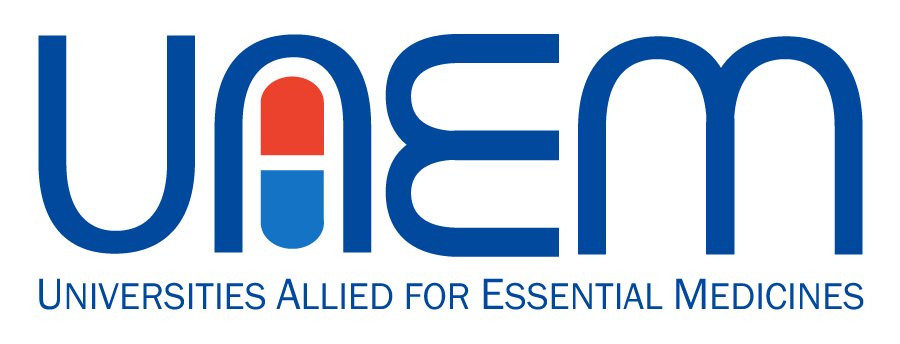Enhancing Access to NIH-Owned Innovations: UAEM's Vision and Recommendations
Universities Allied for Essential Medicines (UAEM) submitted a comprehensive comment letter on the National Institutes of Health's (NIH) proposed rule aimed at increasing access to NIH-owned innovations.
This comment, and the agency's interest in looking at it, is a good sign for where things are heading. UAEM has long advocated for up-stream policy change to make sure that products invented with taxpayer funds are made affordable right from the beginning, and the NIH appears poised to start working on those types of policies.
The basic idea is simple: before anything is invented out of the basic research done in a NIH lab, let's agree that the final product will be affordable for people, and accessible for those who need it most. If we agree to those terms, everyone wins when the final product comes out.
But, the details matter.
Our letter was prepared by UAEM leaders on the Access team, and was informed with expert views from advisors and board members as well.
One of the student leaders who helped write the piece, Nami Ande of the George Washington University chapter of UAEM had this to say about the comment, “UAEM provides a unique and vital perspective when it comes to accountability because universities and institutions, as the birthplace of much drug research, have a responsibility to ensure these innovations and life-saving medicines are accessible to all who need them.”
“UAEM's advocacy is crucial because it targets medicine development at one of its cores: research at universities. UAEM coalesces the wide range of voices starting with the students all the way to the taxpayers to challenge patent practices and promote policies that enhance rightful access to essential medicines, thereby decreasing inequities and improving global health outcomes,” said Faith Choi, of the UAEM UCLA chapter, who also contributed to the comment letter.
Below is a short synopsis of our letter, and you can also find the full linked piece too.
UAEM is a student-driven organization intent on improving norms and practices in academic patenting and licensing. We want to ensure that the health products that university labs develop with public funding are accessible to those in need. Since its inception in 2001, UAEM has grown into a global network with over 100 student chapters in 20 countries. UAEM's commitment to adding affordability provisions within university licenses for publicly funded inventions is exemplified through its policy vehicles, the Equitable Technology Access Framework (ETAF) and the Affordable Access Plan (AAP).
Key Recommendations
1. Transparency in Licensing Processes
- Application Disclosure: Disclose the number of companies applying for each license to provide insight into the agency's leverage and decision-making process.
- Rationale for Exclusivity: Publish detailed justifications for granting exclusive licenses to promote innovation only when necessary and reasonable.
2. Promoting Meaningful Access Approaches
- Flexibility and Specificity: The policy's flexible and non-prescriptive nature risks vague commitments. UAEM suggests incorporating a pricing or affordability review standard to ensure clear guidelines and improve affordability.
- Guidance and Examples: Provide specific examples and strategies for promoting access, drawn from industry partners, to offer practical insights and enhance the policy's effectiveness.
- Annual Review and Advisory Board: Include public comment periods in annual reviews and consider convening an advisory board to provide expert guidance on access plans.
3. Transparency in Biomedical Research and Return on Investment
- Public Disclosure: Require public disclosure of detailed cost breakdowns and financial data to assess the true economic impact and return on investments.
- Return on Investment Dashboard: Establish a publicly accessible dashboard to systematically track and evaluate the efficacy of access to biomedical innovations over time.
- Community Outreach: Partner with civil society organizations to implement community outreach and transparency initiatives.
4. Providing Flexibility While Achieving Clear Policy Objectives
- Structured Flexibility Request System: Develop a transparent process for licensees to request flexibility, ensuring alignment with policy goals.
- Default Access Plans: Introduce a default access plan that NIH can enforce if licensees fail to submit satisfactory plans.
- Monitoring and Enforcement: Implement robust monitoring and enforcement mechanisms to ensure compliance with the policy's standards and conditions.
5. Helping Licensees Achieve Access Goals
- Support Mechanisms: Develop a menu of recommendations, including guidelines, best practices, and case studies to help licensees develop comprehensive access strategies.
- Clear Waiver Criteria and Process: Establish clear criteria and a transparent review process for waiver and modification requests to ensure consistency and accountability.
- Early-Stage Inventions: Include specific clauses for early-stage inventions to ensure they benefit from early access planning and support.
UAEM's detailed comments and suggestions aim to ensure that the NIH's proposed rule effectively increases access to NIH-owned innovations while maintaining a balance between innovation, financial viability, and public interest. By incorporating transparency, clear guidelines, and support mechanisms, the NIH can optimize the impact of taxpayer-funded research and, ultimately, advance science and public health.


